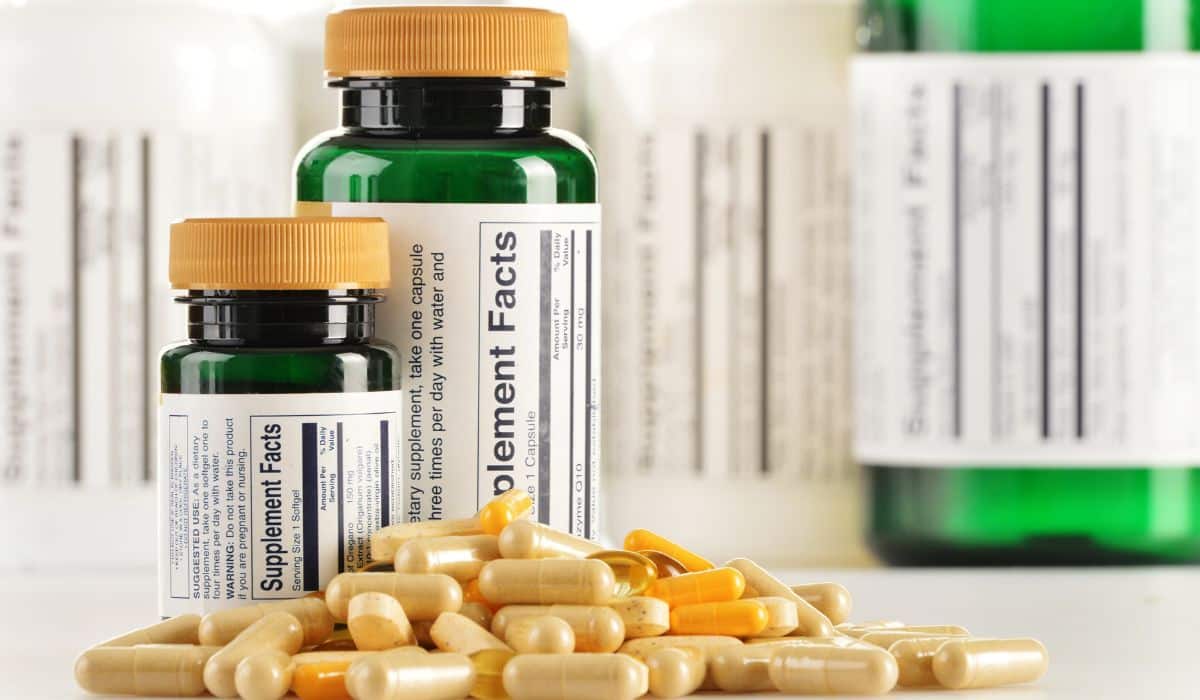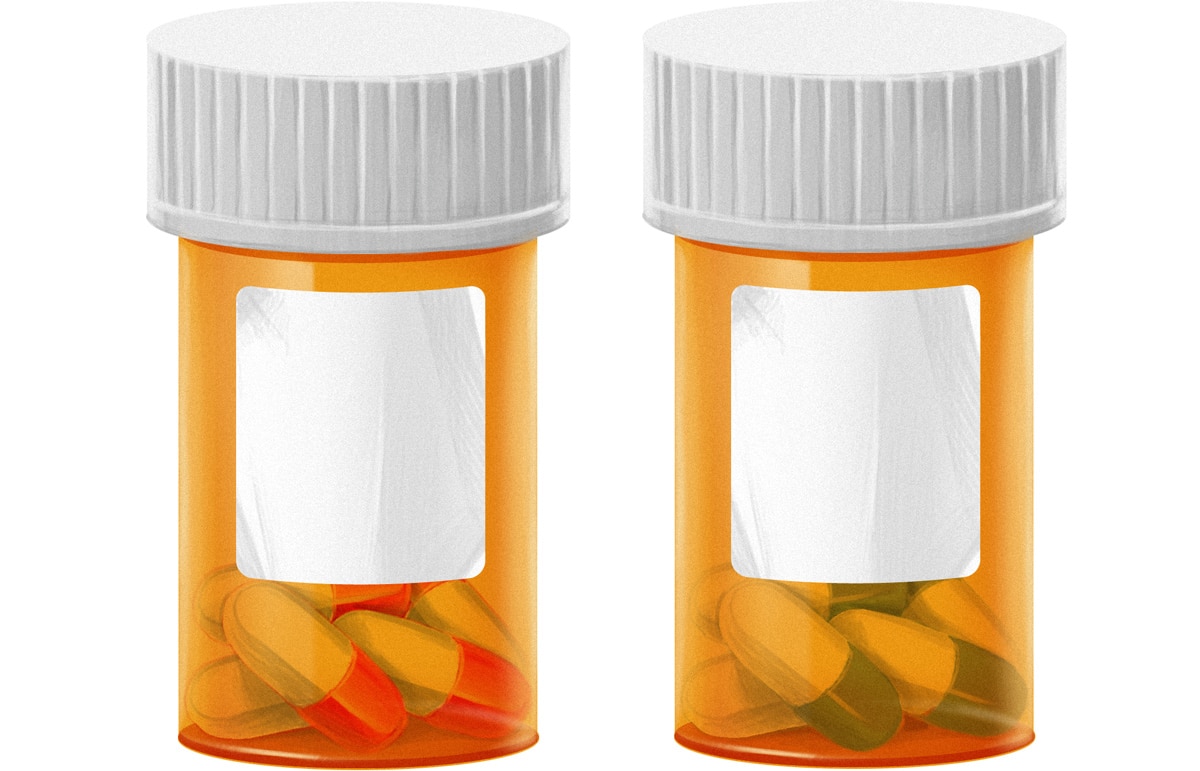
The right supplements can be game-changing. Probiotics and digestive enzymes have a solid track record for digestive health; magnesium might help with constipation, and Vitamin D may be very useful for people who can't get a lot of sun.
But not all supplements are that great. Check out 6 that don't live up to their promises.
1. Calcium
Why you shouldn’t take it: You can read more about this in the full article on calcium, but calcium supplements aren’t great for bone strength, don’t effectively prevent or treat osteoporosis, and may raise the risk of cardiovascular disease. If they don’t help and they might hurt, why would you take one?
What to do instead: If you don’t have any existing bone problems, the good news is that you can get all the calcium you need from food – and no, there’s no dairy required. Collard greens and other dark green leafy vegetables are great for calcium (with the exception of spinach, which doesn’t provide the calcium in a bioavailable form).
If you do have pre-existing bone disease or other problems, ask a doctor about the best supplement. You might be prescribed calcium + magnesium, which may be better than straight calcium.
2. A Multivitamin
Why you shouldn’t take it: it’s more likely to be useless or even dangerous than helpful.
A multivitamin is a combination of several different vitamins and minerals. For any given nutrient, you either need that nutrient in supplemental form, or you don’t need it.
- If you don’t need it, at best your multivitamin is giving you expensive urine. At worst, it could be actively dangerous. For example, taking unnecessary supplemental iron can increase inflammation, especially in men. Most people do not need to supplement with most of the nutrients in a multivitamin. The vast majority of the stuff in there will be useless to you at best.
- Even if you do need it, chances are very low that the multivitamin is providing it in the optimal amount and form. Multivitamins often use the cheapest forms of various nutrients, which are often less absorbable (e.g. cheap magnesium oxide is common in multivitamins, but much more poorly absorbed than the more expensive magnesium chelate). If you really do need a particular nutrient, you’d be better-off getting it from an individual supplement, not a multi.
And don’t even bring up the “insurance” argument. On Paleo, your nutritional “insurance” comes out of your fridge, not your medicine cabinet. Eating a wide variety of different vegetables, fruits, and high-quality animal foods is insurance.
Multiple studies have found that multivitamins have no real health benefits for healthy people eating a varied diet. Don’t waste your money.
What to do instead: Eat real food.
3. (Almost) Anything Marketed for Weight Loss

Why you shouldn’t take it: The FDA has identified three categories of supplements that are particularly likely to be contaminated or downright fraudulent. Supplements marketed for weight loss are at the top of the list. It’s easy to see why weight loss is such a common target for fraudsters: there’s a huge market of desperate people willing to pay for anything that might help.
Supplements marketed for weight loss typically fall into one of three categories:
- Effective, but way too dangerous to be worth it (e.g. ephedra, fen-phen, methamphetamines).
- Ineffective, and therefore a total waste of your money (e.g. green coffee bean extract, raspberry ketones, etc.)
- “Bottle full of grass:” advertised as one of the above, but what you’re actually getting is some random thing like grass or other plants. This is more common than you might think.
For every rule, there’s an exception that proves it. It’s true that some specific supplements may be helpful for weight loss in particular individual people. That’s why the title above says “almost anything.” But here’s the test for taking a weight-loss supplement. Can you clearly state
- Specifically what the supplement does,
- AND why you can’t get it from whole foods,
- AND the evidence (from studies published in actual medical journals) that this particular supplement will help address your particular problem?
99% of weight-loss supplements will fail this test. The 1% that pass may be worth your money, but they’re exceptions to the rule.
What to do instead: Eat right, be patient, and accept that weight loss is a long process of habit and lifestyle change, not a miraculous transformation that you can buy at a drugstore. Basic behavior changes like getting enough sleep or reducing stress have much bigger effects on weight than supplements or “superfoods.”
4. Anything Marketed for Sex
Why you shouldn’t take it: Know what another most-fraudulent supplement category is, besides weight loss? Sex. From erectile dysfunction to libido enhancers (for both men and women), sex sells.
Unfortunately, sex supplements are more or less the same story as weight-loss supplements. Even if you were getting what you paid for, it probably wouldn’t be effective, and the pills you actually buy are very likely to be fraudulent or contaminated anyway. The few “miracle cures” that do work, like yohimbe, are way too dangerous to be worth it.
If you need more evidence for this, or if you just really like that feeling of being torn between horror and laughter, subscribe to the USDA’s Tainted Supplements list and scroll through the lists of notifications about fraudulent products like Full Throttle On Demand or Dick’s Hard Up – both contaminated with dangerous and illegal additives.
What to do instead: If you have a medically relevant sexual problem, there are doctors who can help with that! Go see one of them.
5. Low-Quality Fish Oil.
Why you shouldn’t take it: it’s probably been subject to careless treatment that destroys the beneficial fats.
Fish oil needs to be protected from heat and light, or the beneficial fats won’t actually get to you intact. High-quality fish oil is kept in an opaque bottle and refrigerated until you pull it off the shelf, which protects the fats just fine. But low-quality fish oil just gets thrown out on a room-temperature shelf, often in a clear bottle with clear gel caps inside!
This damages the fragile fats inside. Fish oil is Omega-3 PUFA, but it’s still PUFA. In fact, Omega-3 PUFA may be even more fragile than Omega-6 PUFA. (If you don’t know what any of this Omega-3 and Omega-6 stuff is, here’s an explanation). Fish oil that hasn’t been stored properly is worse than no fish oil at all!
What to do instead: Either take a high-quality fish oil or just eat fish and seafood regularly and forget about supplements completely.
6. Low-quality Probiotics
Why you shouldn’t take them: they don't have the good stuff you're looking for.
High-quality probiotics can make a world of difference in so many different types of gut dysfunction: they’re fantastic. But just like the fish oil, probiotics need a lot of babying. Storage at room temperature kills the bacteria in the probiotic supplement. Cheap probiotics often have lower bacterial counts than the number advertised on the label - probably because a lot of the bacteria have died out while they were sitting around on the shelf for months and months at room temperature.
What to do instead: Eat probiotic foods! They’re cheaper and easy to make at home, and you can guarantee the quality of treatment from start to finish. Alternately, take a high-quality supplement.
What supplements do you take and how do you avoid supplement fraud? Let us know on Facebook or Twitter!





Leave a Reply